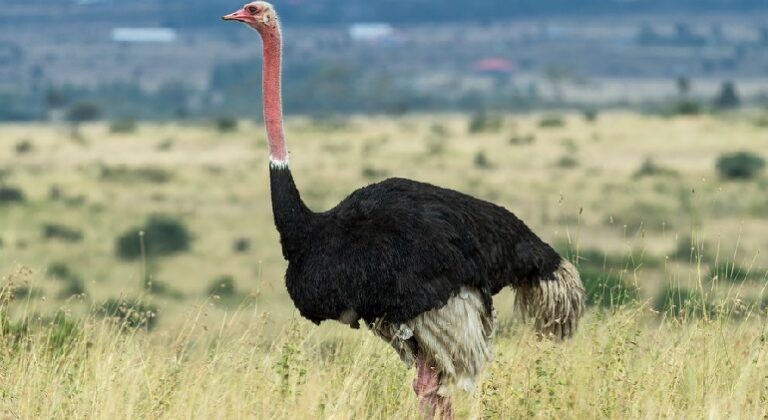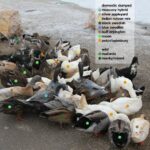California, known for its diverse landscapes and progressive laws, is home to many pet lovers. From common domestic animals to more unusual companions, the Golden State has specific regulations about what creatures can legally share our homes. When it comes to exotic animals, the rules can be complex, and the question of whether you can keep an owl as a pet in California often arises.
While the idea of owning a majestic owl might be enchanting, the reality of owl ownership in California is governed by strict wildlife protection laws. This article will delve into the specifics of owl legality in California, explore the reasons behind these regulations, and provide a broader understanding of exotic pet laws in the state. If you’ve ever wondered “Are Owls Legal Pets In California?”, or are curious about owning any type of exotic animal in California, this comprehensive guide is for you.
The Legal Status of Owls in California: Protected Wild Birds
The short answer to the question “are owls legal pets in california?” is generally no. Owls are classified as native migratory birds and are protected under both federal and state laws. The primary law governing the protection of migratory birds in the United States is the Migratory Bird Treaty Act (MBTA). This act, enforced by the U.S. Fish and Wildlife Service, makes it illegal to take, possess, import, export, transport, sell, purchase, barter, or offer for sale, purchase, or barter, any migratory bird, or the parts, nests, or eggs of such a bird – except under the terms of a valid permit issued pursuant to federal regulations.
California law further reinforces these protections. The California Department of Fish and Wildlife (CDFW) upholds the MBTA and has its own regulations to protect native wildlife. Owls, being native to California and playing a crucial role in the ecosystem, are heavily protected. Therefore, keeping a wild owl as a pet is illegal under both federal and California state law.
Alt text: Majestic Great Horned Owl with piercing yellow eyes, illustrating the wild beauty of raptors that are protected in California.
This legal framework is in place for several important reasons:
- Conservation: Owls are vital components of California’s ecosystems. As predators, they help control rodent populations and maintain ecological balance. Removing owls from the wild for personal ownership can negatively impact these delicate ecosystems.
- Wildlife Protection: Wild animals, including owls, have specific needs that are difficult to meet in a domestic setting. Keeping them as pets can lead to stress, malnutrition, and injury for the animal.
- Public Safety: While not inherently aggressive towards humans, owls are wild animals with natural instincts. Their sharp talons and beaks can pose a risk, especially if they feel threatened or stressed in a captive environment.
- Disease Prevention: Wild animals can carry diseases that can be transmitted to humans or domestic animals. Keeping them as pets increases the risk of disease transmission.
Exceptions and Permits: When Owl Ownership Might Be Possible (Legally)
While owning an owl as a typical pet is illegal in California, there are specific exceptions and permits that might allow individuals or organizations to possess owls under very controlled circumstances. These permits are not for general pet ownership but for specific purposes that benefit wildlife conservation, education, or scientific research.
The CDFW may issue permits for the possession of owls for purposes such as:
- Wildlife Rehabilitation: Licensed wildlife rehabilitators are authorized to care for injured or orphaned owls with the goal of releasing them back into the wild. These individuals have specialized training and facilities to provide the necessary care for these birds. This is not pet ownership, but temporary care for the animal’s well-being.
- Education: Educational institutions, nature centers, or zoological organizations may obtain permits to keep owls for educational purposes. These birds are often non-releasable due to permanent injuries and serve as ambassadors to teach the public about owl biology, conservation, and the importance of protecting wildlife.
- Falconry: Falconry is a highly regulated sport that involves training raptors, including certain owl species, for hunting. Falconry permits are extremely difficult to obtain and require extensive training, experience, and specialized facilities. Falconry is not considered pet ownership but a specific form of regulated hunting and wildlife management.
- Scientific Research: Researchers may obtain permits to possess owls for legitimate scientific studies that contribute to the understanding of owl behavior, ecology, or conservation.
It is crucial to understand that these permits are not easily granted and are subject to strict regulations and inspections by the CDFW and federal authorities. The burden of proof lies on the applicant to demonstrate a legitimate need and the capacity to properly care for the owl while adhering to all legal requirements. For the average individual seeking a pet, obtaining a permit to own an owl in California is practically impossible.
Why Owls Don’t Make Good Pets: Understanding Their Wild Nature
Beyond the legal restrictions, it’s essential to understand why owls are fundamentally unsuited to be kept as pets. Even if it were legal and you managed to obtain an owl, providing for its complex needs in a domestic setting would be incredibly challenging and ethically questionable.
- Specialized Dietary Needs: Owls are carnivores with a diet primarily consisting of whole prey, such as rodents, birds, and insects. They require bones, fur, and feathers in their diet for proper digestion and nutritional balance. Providing this diet in captivity is difficult, expensive, and often involves frozen or euthanized animals, which can be unappealing and logistically challenging for pet owners.
- Nocturnal Lifestyle: Owls are naturally nocturnal animals, meaning they are most active at night. Their sleep cycle is opposite to humans, which can lead to conflicts and stress if kept in a typical household environment. Owls may be noisy at night, disrupting sleep, and may be inactive and less engaging during the day when owners are typically awake.
- Large Enclosures and Environmental Needs: Owls require spacious enclosures that mimic their natural habitat. They need room to fly, perch, and engage in natural behaviors. A typical house or backyard is insufficient to meet these needs. Furthermore, owls require specific temperature and humidity levels, as well as protection from the elements.
- Untamed Wild Instincts: Owls are wild animals with strong natural instincts that cannot be fully domesticated. They are not cuddly or affectionate pets like dogs or cats. Their behavior can be unpredictable, and they may bite or scratch if they feel threatened. Their sharp talons and beaks can inflict serious injuries.
- Longevity and Commitment: Many owl species can live for decades in captivity. Owning an owl is a long-term commitment that requires significant resources, time, and dedication. The responsibility for their specialized care can be overwhelming for most individuals.
- Ethical Considerations: Keeping a wild animal like an owl as a pet raises significant ethical concerns. Wild animals belong in their natural habitats and should not be confined for human entertainment or companionship. Removing owls from the wild disrupts ecosystems and can contribute to population declines.
Alt text: Graceful Barn Owl soaring in flight, highlighting the natural beauty and freedom of these raptors that should be respected in the wild.
Instead of seeking to own an owl, those fascinated by these magnificent birds are encouraged to support owl conservation efforts, visit wildlife centers or zoos that house owls in appropriate environments, or participate in birdwatching activities to appreciate owls in their natural habitats.
A Broader Look: Legal and Illegal Exotic Pets in California
The question “are owls legal pets in california?” is just one example within the larger context of exotic pet ownership in the state. California has some of the strictest exotic animal laws in the United States, aiming to protect both native wildlife and public safety. While owls are clearly on the “illegal pet” list for most individuals, California’s regulations are nuanced, and some surprising animals are legal to own, while others are strictly prohibited.
Legal Exotic Pets in California (with some regulations):
- Hybrid Cats (like Savannah and Bengal cats): Surprisingly, all generations of hybrid cats are legal in California, although some other states have stricter rules based on generation.
- Zebras: Yes, zebras! As members of the Equidae family, they are not restricted in California. However, owners need to demonstrate experience with exotic species.
- Alpacas and Llamas: These domesticated camelids are legal and can make good pets for those with adequate space.
- Certain Reptiles (like Bearded Dragons and Chameleons): Many non-native reptiles are legal, offering unique pet ownership experiences.
- Tarantulas: For spider enthusiasts, tarantulas are legal pets in California.
Illegal Pets in California:
- Ferrets: Despite being popular pets elsewhere, ferrets are illegal in California due to concerns about their impact on native wildlife if they escape.
- Hedgehogs: Similar to ferrets, hedgehogs are considered a potential threat to native ecosystems.
- Monkeys and other Primates: Primates are illegal due to public safety and wildlife concerns.
- Squirrels and Gerbils: These rodents are also prohibited to protect native flora and fauna.
- Foxes: Foxes, including Fennec foxes, are illegal due to potential aggression and risks to native wildlife.
- Sloths and Capybaras: These exotic mammals are also illegal in California.
- Venomous Reptiles: Venomous snakes and other venomous reptiles are generally illegal to keep as pets, with good reason.
This is not an exhaustive list, and California’s exotic pet laws can be complex and subject to change. Always consult the California Department of Fish and Wildlife for the most up-to-date regulations before considering any exotic pet.
Frequently Asked Questions about Exotic Pets in California
Can You Own A Pet Sloth In California?
No, sloths are illegal to own as pets in California.
Does There Exist Any Kind Of Permit To Own Exotic Pets In California?
Yes, permits exist, but they are typically for specific purposes like scientific research, education, or wildlife rehabilitation, not for general pet ownership of prohibited species.
Can You Own A Fennec Fox As A Pet In California?
No, Fennec foxes are illegal pets in California due to concerns about their potential impact on native wildlife.
Can You Own A Capybara In California?
No, capybaras are illegal to own in California.
Are Savannah Cats Legal In California?
Yes, Savannah cats of all generations are legal in California.
Can You Own A Tiger In California?
No, owning tigers and other big cats is illegal in California.
Can You Have An Owl As A Pet In California?
Generally, no. Owning an owl as a pet in California is illegal under federal and state laws due to their protected status as native migratory birds. Permits are only granted for very specific purposes like rehabilitation, education, or falconry, not for general pet ownership.
Are Otters Legal In California?
No, otters are not legal to keep as pets in California.
Conclusion: Respecting Wildlife and California’s Laws
The answer to “are owls legal pets in california?” is a resounding no for the vast majority of people. California’s laws rightly protect these magnificent birds and prioritize wildlife conservation. While the allure of owning an exotic animal can be strong, it’s crucial to understand the legal, ethical, and practical realities of such ownership.
California’s exotic pet laws are in place to protect native ecosystems, ensure public safety, and safeguard the welfare of wild animals. Before considering any animal as a pet, especially if it’s not a common domestic species, it’s imperative to thoroughly research California’s regulations and understand the responsibilities involved. Choosing a pet should be a decision made with careful consideration for both the animal’s well-being and the legal framework in place to protect wildlife and the environment. For those who admire owls and other wild creatures, the best approach is to appreciate them in their natural habitats and support conservation efforts that ensure their continued survival in the wild.

